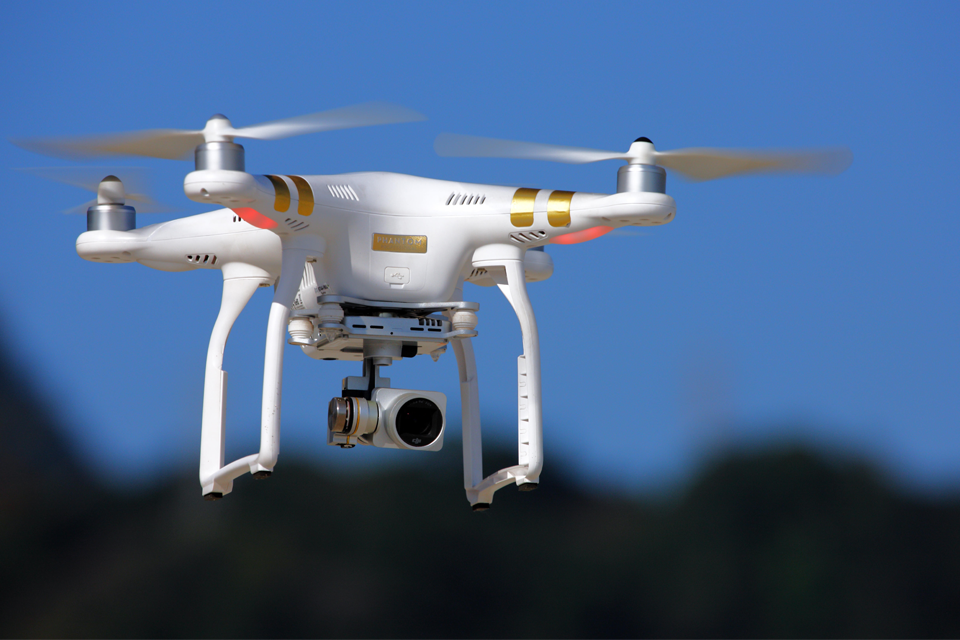The UK’s Aviation Minister, Mike Kane, has confirmed funding investments of over 20 million GBP for the launch of new flight technologies within the country.
The funding plan has been devised to provide investments into aviation technology to aid with healthcare for the NHS, assist police forces, help inspect and survey critical infrastructure and better equip delivery services across the UK.

The funding will also support a regulatory pathway that could see air taxis in use from 2028
As part of the announcement, Kane and the Science Minister, Patrick J Vallance, have also set out how the Department for Transport (DfT), Civil Aviation Authority (CAA) and the new Regulatory Innovation Office (RIO) in the Department for Science, Innovation and Technology (DSIT) will streamline regulatory processes to allow for the commercialisation of the industry.
Aviation Minister, Mike Kane, said:
I want the UK to have the most advanced aviation technology ecosystem in the world.
That means creating a nimble regulatory environment and a culture of innovation so everyone can benefit from cutting-edge transport while tackling emissions, traffic and potentially saving lives.
Our investment alongside the new Future of Flight industry group will bring together tech experts, drone operators, flying vehicle manufacturers and local communities to identify where change needs to happen.
The RIO’s streamlining of regulatory processes aims to further simplify existing processes whilst maintaining high safety standards for projects seeking approval, with extensive support set to be provided for the DfT and CAA in the rapid integration of drones and flying taxis.
Consultations are set to be held on the mandatory use of new electronic conspicuity standards, as well as technologies allowing aircraft to share their locations in real-time, aiding drones and crewed aircraft fly simultaneously without issue.
Science Minister, Lord Vallance, said:
These regulatory reforms for drones – requiring all aircraft to share their location – will make drone operations safer and therefore speed up approvals, allowing them to operate near airports and simplifying their use for delivering medical supplies – while unlocking further commercial opportunities.
This is a practical step to cut red tape and a great piece of progress for the Regulatory Innovation Office, growing the UK’s position as a world leader in emerging technologies and helping drive the growth that will deliver our Plan for Change.
Changes to the processes involved with the approval and regulation of new aviation technology include plans to simplify regulations to enable a 2-year airspace change for drone operations, as well as the introduction of changes that will enable emergency services to use drone services, with further simplifications to enable faster integration.
All funding is set to be divided between the CAA, which will receive 16.5 million GBP between 2025 to 2026 in order to deliver a regulatory programme enabling drones to fly beyond visual line of sight (BVLOS) and progress toward the integration of routine air taxi (eVTOL) operation throughout the UK.
Stuart Simpson, CEO of Vertical Aerospace, said:
Flying taxis will transform the way we move — making it quicker, quieter and cleaner to travel while connecting communities and supporting essential services.
The UK has an incredible opportunity to lead the world in this new era of aviation, delivering not just greener transport but real economic growth and skilled jobs.
This latest funding is another welcome step towards seeing that ambition realised and our world-leading aircraft flying in British skies from 2028.
The programme includes the publishing of a pilot eVTOL roadmap, development of drone pathways and consultations on concepts of operations for uncrewed traffic management (UTM) and Detect and Avoid (DAA) technology.
Additionally, the Future Flight Challenge is set to receive up to 5 million GBP from DfT and Innovate UK to support industry looking to turn new aviation technologies into viable, profitable businesses benefitting communities and supporting growth.
Mike Biddle, Executive Director of Net Zero, Innovate UK, said:
Innovate UK is excited to build on the highly successful work of the Future Flight Challenge by working in partnership with DfT through this joint funding. We look forward to working with industry, end-users, DfT, DSIT and the CAA as we accelerate the transition from innovation to commercial operations.





